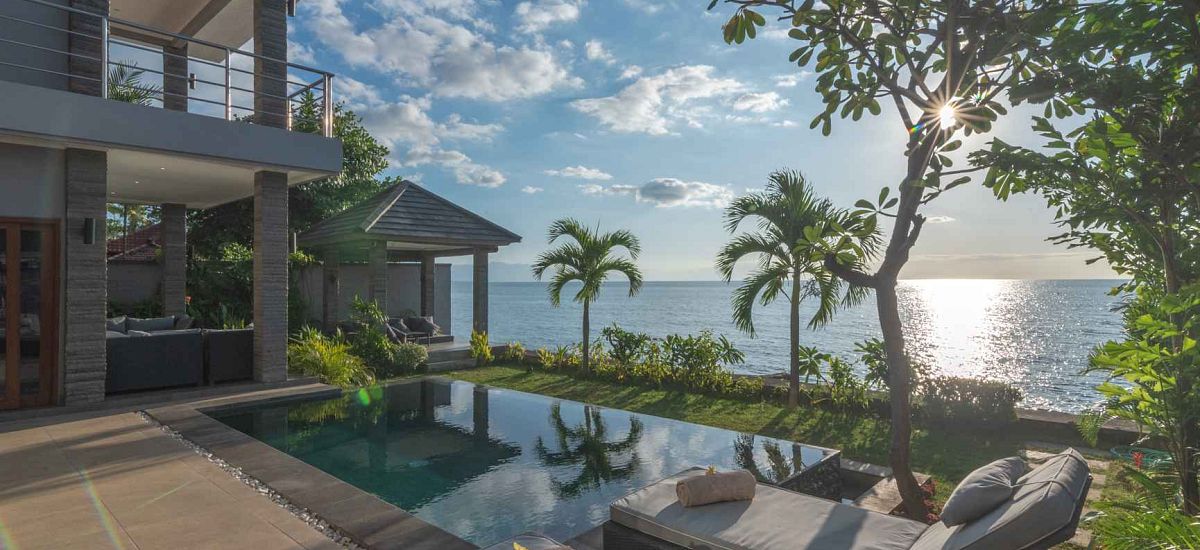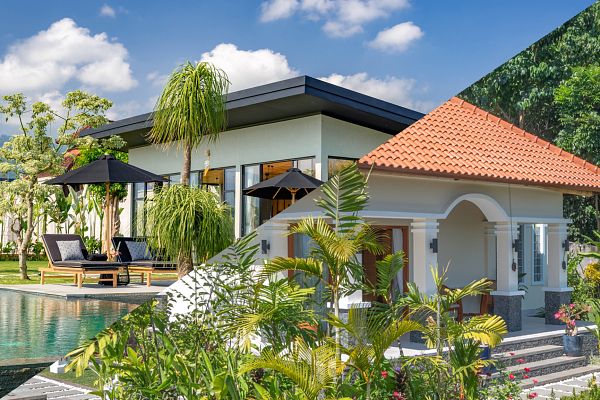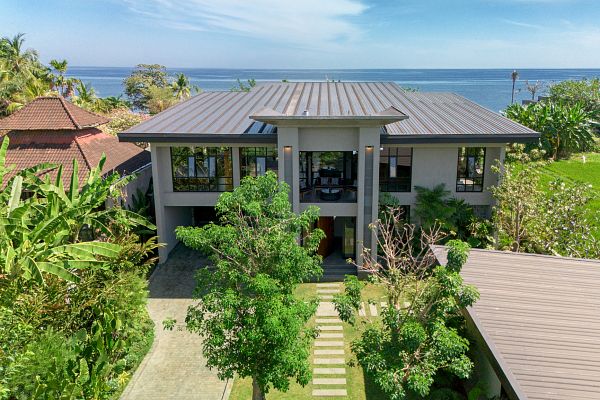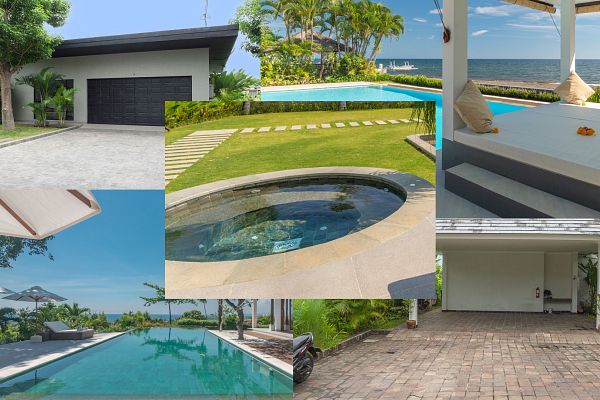Bali Property Buyers Guide
Thinking about purchasing property in Bali?
Here are some things to consider when purchasing a property in Bali… and owning or leasing the land where we will build your villa....
Disclaimer: This is a general guide. For more information on specific properties or uses, please consult a lawyer, for instance the lawyer at our office.

Property Ownership Types in Bali, Indonesia
There are different ownership types for different purposes, the ones on this website are those common for residential property in Bali:
1. Hak Milik (Freehold)
This title grants the owner full ownership rights to the property, including the ability to sell, lease, or transfer the property. Freehold properties can be held by Indonesian citizens. Freehold land title ownership has no limit in time for the landowner and their beneficiaries.
Married to an Indonesian Citizen?
The foreigners in mixed marriages do not always realize that the only legal owner of Hak Milik, right of ownership, can be the Indonesian wife or husband since foreigners can not own properties even after entering wedlock.
A foreigner who is about to marry or who is already engaged with an Indonesian citizen should draw up a prenuptial (or post-nuptial, if possible) agreement in order to divide his or her and the spouse’s assets.
Failure to provide this agreement may result in seizure of conjugal property by the government, because a marriage turns the couple in a single legal entity, not able to own property.
In practice however, notaries do not check for pre or postnups, and the Indonesian citizen can buy and sell property with permission of the spouse...
However, believe in God and Love, but make a contract with people.
2. Hak Guna Bangunan (HGB) - Right to Build (for companies)
As foreigner, you can obtain this title, if you have a PT-PMA company (Foreign Investment Limited Liability Company). Hak Guna Bangunan, often shortened to HGB, is a type of ownership that is designed for companies. Literally, it is a "right to build" for a company. It is quite close to freehold in its core idea: an Indonesian company can own the land and the property, build what is required if requirements are met, and sell / transfer the ownership to another company if needed. A PT is similar to a Ltd. or a Dutch BV. Depending on the purpose of the PT, foreigners can own the company fully, or part of it.
One of the main differences between a HGB and a freehold, aside from who can own it, is that a HGB is limited to a total of 80 years (30 years initially + one first 20 years extension + 30 years final extension). After that, the company can’t own the HGB rights anymore and should transfer them.
Please note that just raising a company to own residential property may be questioned by the governement, it should have a business purpose as well.
3. Hak Pakai (Right to Use)
The Hak Pakai, or right to use, isn’t the type of ownership you are likely to hear the most. This one of type of ownership is made for foreigners that officially reside in Indonesia, meaning that they own a KITAS or a KITAP. The Hak Pakai is the only way a foreigner can legally own a property under his personal name in Indonesia.
There are however, some limitations:
Few houses, villas and apartments are eligible to hak pakai. The initial ownership is 25 years only and can be renewed up to a total of 70 years. A foreigner can only own one property through this scheme for his own residence and no commercial activities are allowed, such as holiday rentals. In Bali, there is a minimum transaction value to have Hak Pakai, it is Rp. 5.000.000.000,- (five billion rupiah,around 300.000 eur)
4. Hak Sewa (Leasehold - Long Term Lease)
Hak Sewa grants the owner the right to use and occupy a property for a specific period, usually 20 or 30 years but you can negotiate with the owner of the land about the lease period. The property remains the property of the government or the original landowner, and the lease can be renewed at the end of the lease period if there is an option to extend in the lease agreement. Leasehold properties are commonly held by foreigners and are a popular option for those looking to buy property in tourist areas such as Bali.
Leasehold ownership may be a better option for those who plan on using the property as a holiday home with the possibility to rent out the property. The leasehold property owner, or lessee is responsible for paying property taxes, maintenance, and other costs associated with the property.
Transfer (selling) of Long-Term Leases
Below is some information for those who hold a long-term lease property (Hak Sewa) and are considering selling this lease. Depending on the duration of the lease and property appreciation, this transaction may prove to be lucrative. Please note that tax on selling a long-term lease is 10%. Investing in leased property can be a viable option, although future market conditions are inherently difficult to predict. The transfer of lease rights (often referred to as the transfer of hak sewa) involves a process that requires certain legal formalities. Here is an overview of the steps and key aspects involved:
Agreement between Parties
The transfer of lease rights must be based on an agreement between the current lessee (the transferor) and the new lessee (the transferee). This agreement should be documented in writing, outlining the terms and conditions of the transfer.
In most lease agreements in Indonesia, the lessor's consent is required before a lease can be transferred. This ensures that the lessor approves of the new lessee taking over the lease rights. The lease agreement may explicitly state whether the consent is needed. If consent is required, the lessor must approve in writing. The lease agreement must be checked for this condition.
Although not always mandatory for a lease agreement, it is highly recommended to notarize the transfer document. Notarization helps to avoid potential legal disputes in the future, as it creates an official and binding record.
The transfer should specify that the transferee assumes all obligations and responsibilities under the original lease agreement, including the payment of maintenance, property taxes and other terms. Once the transfer is legally completed, the transferee becomes the new lessee, and the original lessee (transferor) no longer has rights to the property, or any obligations related to the lease (unless stated otherwise in the agreement).
A lease term typically cannot exceed 30 years in Indonesia, with possible extensions. We usually offer extended lease agreements, up to 99 years in total. Therefore, when transferring lease rights of a long-term lease you should consider the remaining term. So, if your extended lease is 99 years, and you decide to sell after 10 years, the buyer of the lease will have 89 years remaining.
Payment of Applicable Taxes
There may be certain taxes or fees associated with the transfer of lease rights, such as income tax on rental income of the lessee and the fee for the notary. The parties involved should be aware of any tax obligations related to the transfer, as these taxes may need to be settled.
Buying Process
General basic steps for a successful purchase / lease include:
1. Buyer selects a villa they like
2. Buyer offers a price to the seller
3. Seller + buyer agree on a price and conditions to be fulfilled (negotiation)
4. If the seller agrees on the offered price and conditions, a pre-agreement will be completed for both buyer and seller. When both parties are satisfied with the agreement, both parties will sign.
5. Buyer needs to pay a 10% deposit within 7 days of signing the pre-agreement.
6. Once the deposit is paid, the notary will be contacted and sent all details of the seller and buyer.
7. Due diligence completion: The original documents will be checked at the notary (e.g. ownership, land history, zoning, regulations, lease rights, previous lease agreement, tax payments)
8. If the notary is satisfied with documentation and DD is completed, the notary will draw up the new agreement and send it to both parties for approval.
9. Both parties will sign at the same time at the notary. At the time of signing, the remaining 90% payment must be made and once the seller has received the payment, the notary can proceed.
10. Notary will let the agent know when everything is completed.
11. Handover of keys.
Buyer And Seller Costs Freehold Sale
Buyer: Tax: 5% Notary fee: 1% - can be split with seller
Seller: Tax: 2.5%, Agent commission
*Land and building tax (PBB) needs to be paid and up to date.
Buyer And Seller Costs Leasehold Sale
Buyer: Notary fee: 1% - 2%
Seller: 10% lease tax, Agent commission
Other taxes to be aware of:
1. Rental property tax (If wanting to rent out your property)
Rental property tax in Indonesia is calculated based on the gross rental income earned from the property. Rental income or Lease Tax is levied in the amount of 10% of the Lease Value for tax residents in Indonesia. For non-tax Residents the Lease Tax due is 20% of the Lease Value.
2. Construction tax (only for those who are building)
Based on the construction budget of the building tax is 2% if building yourself, if with contractors, the contractor will add the tax into the price.
3. Name Change Tax (Freehold only)
There is a small Name Change Tax to allow for changing the name on a certificate from the buyer to the new owner, which is called Bea Balik Nama or BBN. It is calculated by dividing the price per square meter of land by 1.000 and multiplying it by the amount of square meters that you are buying.
Guesthouse Designs - Bali

1 Bedroom
Building Size +/- 35m2
Bedroom size +/- 20m2
Living area: Bedroom
Terrace size +/- 15m2
Villa Design Three

5 bedrooms
Building Size 600m2
Bedrooms size 20-40m2
Living area size 32m2
Terrace size +/- 60m2
Villa Options

Enhance your Property
Infinity Pool
Gazebo
Jacuzzi
Carport - Garage

